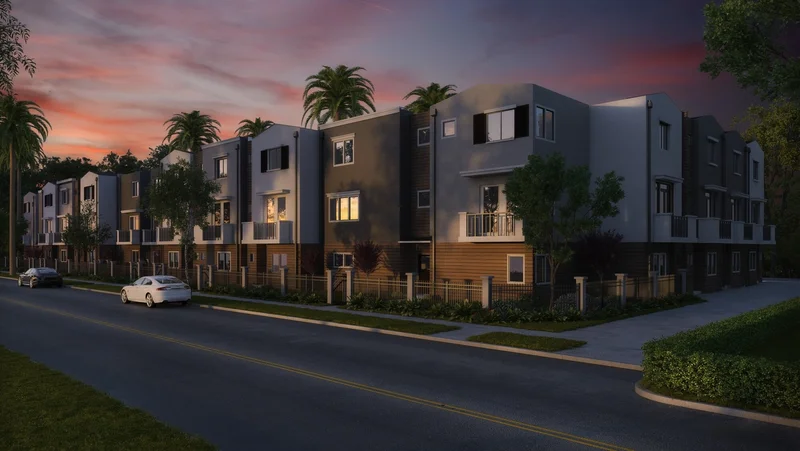While the dream of life without work is appealing, the reality is that most Americans will reach retirement age with insufficient savings. For many, their only option may be to continue working or turn to other sources of income. Owning rental properties can ensure you have a source of income after retirement.
It’s important to note that your 401(k) remains the most reliable source of retirement income. Boosting your 401(k) contributions can help you increase your retirement savings. It can also give you peace of mind if you’re concerned about post-retirement income. Still, here are five benefits that may make rental properties a worthwhile investment.
Table of Contents
#1: Property Appreciation
One of the biggest benefits to rental properties is that they tend to increase in value over time. If you buy low and then sell at the right time, you can increase your net worth. Even if you stick with a rental property for the long term, it can be an excellent source of relatively passive income in retirement, as we’ll get into below.
#2: You Can Supplement Your Retirement Income
Another benefit is using rental property to supplement your retirement income with cash flow from renters. Yet, maintenance, emergencies, and empty properties can disrupt your rental income. A good practice is to set aside 15% to 20% of your rental income for emergencies. The emergency fund can then minimize disruption when you don’t have tenants.
#3: Rental Properties May Help You Save Money on Taxes
A great way to increase your wealth over time is through incurring tax benefits. Because of a depreciation deduction, you can offset some or all your rental income through tax breaks. This reduces the amount of taxes that you owe each year. So, a greater portion of your money to go toward day-to-day and lifestyle expenses.
#4: Rental Properties Can Provide Flexibility During Retirement
Rental properties also provide additional flexibility. For example, if you want to move closer to family or friends after retiring, you can rent out your home. Or you could move to a smaller home and use your first house as an investment property. You can also rent out the other homes that you purchase throughout retirement if needed.
#5: You Can Sell Rental Properties When You Need Money
Finally, an extra property can give you peace of mind if the economy takes a downturn. If your retirement income is reduced, you can sell your rental properties to help cover expenses. This means that you don’t have to worry about being forced back into work or depending on your children.
Projecting Retirement Income
You will want to see just how much income rental properties will generate for you in retirement. It makes a lot of sense to build a retirement plan or have one built for you by hiring a financial planner. If you want to build the plan yourself you can do this using retirement planning software that is built for the individual. The WealthTrace Planner is one application that many consumers use to plan their own finances and project their retirement income. Another good retirement planning tool that is simple to use and is free is available from Nerd Wallet.
Drawbacks of Owning Rental Properties in Retirement
While rental properties can be a great source of income, there are also some drawbacks. To start, you’re responsible for finding tenants, managing the property, and paying expenses. This typically includes taxes, insurance premiums, repairs, and upgrades to your property.
In addition, you need to ensure that your rental property provides a return on investment. This means that you need to manage your rental property expenses. If the costs of owning a rental property are too high for the income it generates, it isn’t a good investment.
Be wary of getting into too much debt to buy rental properties. If the housing market has a major downturn and you have to sell, you would have to come up with the difference between the value of the home and the mortgage. For some investors, this has meant declaring bankruptcy.
Another drawback is that your retirement income may become dependent on market forces. For example, if you lose a tenant, you may have to pay costs out of pocket while looking for a new one. Or if there’s a downturn in the market, you may have to wait a few years before the property’s value increases again.
Similarly, there’s no guarantee when it comes to rental income. It might be difficult and stressful for you and your family if your property becomes impossible to rent.
Finally, rental properties require maintenance to be successful. If you aren’t willing or able to maintain your rental properties, then it may not be a good investment for you.
Consult With a Trusted Advisor
Owning rental properties in retirement can be a smart way to diversify your investments and create an income stream. It does require some initial capital, though. If you’re considering this option for your financial future, make sure to consult with a trusted advisor who is knowledgeable about real estate investments before making any commitments or signing on the dotted line.
Read Also: Where to Buy Rental Property: A Guide

